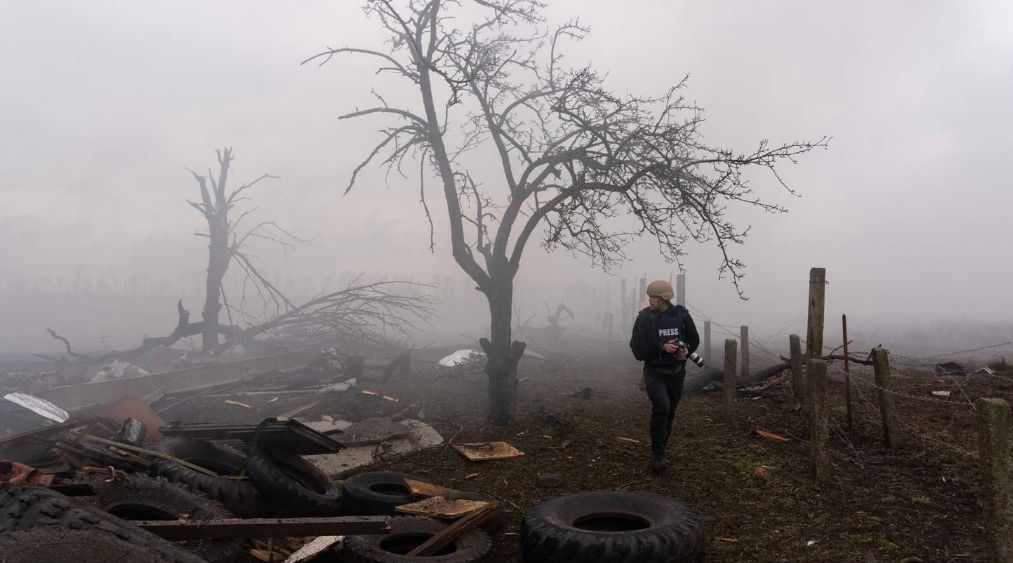In the early days of the Russian invasion of Ukraine, the port city of Mariupol came under siege. A camera crew stayed behind, hoping to show the world what would transpire as the Russians closed in on the city. 20 Days in Mariupol, written, directed, and filmed by Mstyslav Chernov, is the culmination of their work as it takes viewers through the first 20 days of the 86-day siege, until the camera crew eventually escaped the city.
As I sit here, trying to pull my thoughts together on how to approach talking about the string of nightmarish moments I’ve just witnessed, I find myself at a complete loss for what I can say that could possibly do justice to the scenes I have witnessed. I have written over 1,500 pieces, over a wide range of concepts and mediums. But I can’t draw on any of those for the words of what I have just witnessed. War, at its most brutal and barbaric. War, as the final, torturous means to subjugate those around you, that possess something a government desires, but cannot have through peaceful means. I cannot imagine how anyone can choose to unleash such a calamity on another, and I have only watched it through a lens in the comfort of my living room.
If you have kept up with the unfolding events surrounding the invasion of Ukraine, you may go into 20 Days in Mariupol thinking that you are prepared for what the hour-and-a-half-long film will bring. You aren’t. The footage and discourse that capture the rapid disintegration of life for the people of Mariupol is something that can’t be prepared for. From the first day of shelling, when people still believed that Russia wouldn’t target civilians, to the final frames shot from a Red Cross convoy fleeing the city, the pain, devastation, and death that spread throughout the port city is emotionally overwhelming in every brutal moment of the film.

While the shocking images of bombed maternity wards and leveled fire stations are the moments that grip the mind the hardest, even the slower moments of the film show the wear on the collective psyche of the city. Where every jet and air raid siren is met with the mad scrambling of the civilian population, as the days churn on, they are met with a less immediate response by many. Some shuffle to areas of greater safety, while others simply continue on with what they were doing, as if the sirens were not there. The loss of will and drive that the deteriorating responses show is chilling in its own right. That people can be subjected to such constant threat that it loses its terror is deeply unnerving.
Assembling all this pain and suffering so it can be presented to the viewer in a way that is clear and manageable is no easy task. Chernov’s work with the camera manages to keep each moment as clear as possible, while 20 Days in Mariupol pulls the viewer from place to place as the world shrinks around them. There is a clear respect for the people on camera, as the film strives to share the events of the unfolding calamity while avoiding being inconsiderate of those living it.
What continues to unfold in Ukraine is horrible, and 20 Days in Mariupol is the clearest presentation many of us can get to understanding just how deeply devasting the pain that is being caused there runs. The horrors depicted throughout spare no one as the invasion of the city unfolds.
20 Days in Mariupol is playing in select theaters July 21st.
20 Days in Mariupol
-
Rating - 10/1010/10
TL;DR
What continues to unfold in Ukraine is horrible, and 20 Days in Mariupol is the clearest presentation many of us can get to understanding just how deeply devasting the pain that is being caused there runs. The horrors depicted throughout spare no one as the invasion of the city unfolds.







